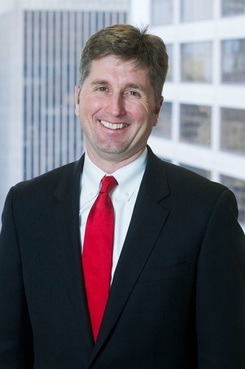Why I Moved Laterally: It Was About More Than Money
. Technology and the ease with which people can travel is shrinking the world in which we live; and other market forces are being fundamentally altered by the way people view the world. For this reason, an accomplished legal career looks significantly different than it did 10 years ago. Because lawyers are using different metrics to evaluate success, law firms must do the same to maintain longevity.
March 22, 2018 at 12:17 PM
6 minute read

The Greek philosopher Heraclitus is credited with saying that “the only thing constant in life is change.” This axiom is certainly true as it relates to the present day market for lawyers and law firms. Technology and the ease with which people can travel is shrinking the world in which we live; and other market forces are being fundamentally altered by the way people view the world. For this reason, an accomplished legal career looks significantly different than it did 10 years ago. Because lawyers are using different metrics to evaluate success, law firms must do the same to maintain longevity.
Approximately a year ago, I was working in a wonderful suburban Philadelphia law firm. The firm was highly successful, the people with whom I worked were phenomenal, and I was enjoying my work. An unexpected opportunity came along, however, for me to move laterally to my current firm, Offit Kurman. Ultimately, I decided to change the law firm with which I was affiliated knowing I was taking a chance by leaving an already good situation behind.
My decision to move laterally was based on factors other than making more money. While it would be disingenuous for me to suggest this was not part of the consideration, I can honestly say it was secondary to a number of other components of the decision-making process. I was interested in being at a law firm that is entrepreneurial and operated like a business; and I wanted an opportunity to utilize skills I had acquired over the years to take on more of a leadership role in the operation of an organization. As a lawyer, I had also worked with countless businesses along the way and learned how important culture and teamwork were to a successful company. The idea of having a laboratory to try out my ideas of how to build these things in a law firm setting also had great appeal.
Much of my mentality as it relates to these topics stems from my time as an athlete. I still remember the coaches on one of the best teams I ever played telling the players to do the right things in order to win their individual battles in that particular match. If each player focused on their own metaphorical “battle,” the right result would simply come as a byproduct of those efforts. I carry this philosophy with me as it relates to my work as a lawyer. If I am in the right law firm environment and do the right things, the desired outcome will happen as a byproduct of those actions.
Although making more money is an acceptable goal, it's not first on everyone's priority list. Lawyers change firms for a variety of reasons. Some attorneys move laterally for the same reasons I came to Offit Kurman. Others move because they want to be closer to home or are looking for a different work-life balance. Still others are looking to change practice areas or work with a specific firm they perceive to have prestige. The list is long and relative to each individual. The key to attracting lateral talent is to appreciate this dynamic and understand both what an individual lawyer may be looking for and what your firm can offer.
I moved laterally to Offit Kurman because I found a good synergy with the firm and the people that run it.
The entrepreneurial spirit is on full display here; and the firm is run like a corporation complete with a board of directors and CEO. Organizationally, our firm employs a large number of nonlawyers in important decision making roles—by design. We have a managing principal like most firms, but we also spend significant amounts of time listening to entrepreneurs who were highly successful in industries other than legal services. Among other things, we also have a full-time marketing team and talk religiously about both how to serve existing clients better and attract new ones.
My arrival at Offit Kurman also provided me with an immediate opportunity to take on a leadership role. Being charged with opening the firm's new suburban Philadelphia office started with the welcomed challenges of setting up operations for the team I brought with me, finding talented new lawyers and staff to join our group, and helping the firm find new office space. Additional strategic planning responsibility was close behind in order to fit into the firm's long term growth plan and figure out what sectors of the economy our office would serve. Becoming a practice group leader in my area of expertise in a firm that spans most of the Mid-Atlantic region was yet another opportunity for leadership.
These roles also gave me the opportunity to test my ideas about building culture and teamwork in a law firm setting. In fact, this was an integral part of the conversation with Offit Kurman's management team when I was considering joining the firm. They did not pay my ideas lip service. Instead, they listened as I outlined my proposed strategy to build out the new suburban Philadelphia office, asked questions and offered feedback, and trusted their own entrepreneurial instincts in giving me the opportunity to implement these ideas. This was no doubt as much a risk for them as it was for me, but we identified what we both saw as an opportunity and accepted the challenge. In the end, both the firm and I have benefited by building something more than just a bigger book of business for one individual lawyer.
I know there are many lawyers like me who want more than the big paycheck and the BMW in the driveway portrayed in so many lawyer movies. I know because I have talked to them. A significant part of the lateral market wants an opportunity to take on leadership roles, solve complex and difficult problems, or be part of a firm that allows them to implement new ideas. As an interesting side note, a good number of the lawyers who are looking for these things already have large books of business because the qualities that drive the quest for these noneconomic elements are usually part of the foundation that allows a lawyer to originate work.
The firms that realize this dynamic—much like we do at Offit Kurman—are the ones that will do well in the lateral market. It will always be about the money for some people. But as the world changes, for many more it will be about so much more than the financial goal. It seems safe to predict that opportunities like the one that created the synergies between my current firm and me will be what drives the lateral market going forward.
Joshua C. Quinter, principal attorney and regional practice group director at Offit Kurman, is a commercial litigation and business planning lawyer with a focus on construction law. Contact him at [email protected].
This content has been archived. It is available through our partners, LexisNexis® and Bloomberg Law.
To view this content, please continue to their sites.
Not a Lexis Subscriber?
Subscribe Now
Not a Bloomberg Law Subscriber?
Subscribe Now
NOT FOR REPRINT
© 2025 ALM Global, LLC, All Rights Reserved. Request academic re-use from www.copyright.com. All other uses, submit a request to [email protected]. For more information visit Asset & Logo Licensing.
You Might Like
View All

Ballard Spahr Aims to Balance Hybrid Work With Relationship Building in Training New Associates
5 minute read
Trending Stories
Who Got The Work
J. Brugh Lower of Gibbons has entered an appearance for industrial equipment supplier Devco Corporation in a pending trademark infringement lawsuit. The suit, accusing the defendant of selling knock-off Graco products, was filed Dec. 18 in New Jersey District Court by Rivkin Radler on behalf of Graco Inc. and Graco Minnesota. The case, assigned to U.S. District Judge Zahid N. Quraishi, is 3:24-cv-11294, Graco Inc. et al v. Devco Corporation.
Who Got The Work
Rebecca Maller-Stein and Kent A. Yalowitz of Arnold & Porter Kaye Scholer have entered their appearances for Hanaco Venture Capital and its executives, Lior Prosor and David Frankel, in a pending securities lawsuit. The action, filed on Dec. 24 in New York Southern District Court by Zell, Aron & Co. on behalf of Goldeneye Advisors, accuses the defendants of negligently and fraudulently managing the plaintiff's $1 million investment. The case, assigned to U.S. District Judge Vernon S. Broderick, is 1:24-cv-09918, Goldeneye Advisors, LLC v. Hanaco Venture Capital, Ltd. et al.
Who Got The Work
Attorneys from A&O Shearman has stepped in as defense counsel for Toronto-Dominion Bank and other defendants in a pending securities class action. The suit, filed Dec. 11 in New York Southern District Court by Bleichmar Fonti & Auld, accuses the defendants of concealing the bank's 'pervasive' deficiencies in regards to its compliance with the Bank Secrecy Act and the quality of its anti-money laundering controls. The case, assigned to U.S. District Judge Arun Subramanian, is 1:24-cv-09445, Gonzalez v. The Toronto-Dominion Bank et al.
Who Got The Work
Crown Castle International, a Pennsylvania company providing shared communications infrastructure, has turned to Luke D. Wolf of Gordon Rees Scully Mansukhani to fend off a pending breach-of-contract lawsuit. The court action, filed Nov. 25 in Michigan Eastern District Court by Hooper Hathaway PC on behalf of The Town Residences LLC, accuses Crown Castle of failing to transfer approximately $30,000 in utility payments from T-Mobile in breach of a roof-top lease and assignment agreement. The case, assigned to U.S. District Judge Susan K. Declercq, is 2:24-cv-13131, The Town Residences LLC v. T-Mobile US, Inc. et al.
Who Got The Work
Wilfred P. Coronato and Daniel M. Schwartz of McCarter & English have stepped in as defense counsel to Electrolux Home Products Inc. in a pending product liability lawsuit. The court action, filed Nov. 26 in New York Eastern District Court by Poulos Lopiccolo PC and Nagel Rice LLP on behalf of David Stern, alleges that the defendant's refrigerators’ drawers and shelving repeatedly break and fall apart within months after purchase. The case, assigned to U.S. District Judge Joan M. Azrack, is 2:24-cv-08204, Stern v. Electrolux Home Products, Inc.
Featured Firms
Law Offices of Gary Martin Hays & Associates, P.C.
(470) 294-1674
Law Offices of Mark E. Salomone
(857) 444-6468
Smith & Hassler
(713) 739-1250






